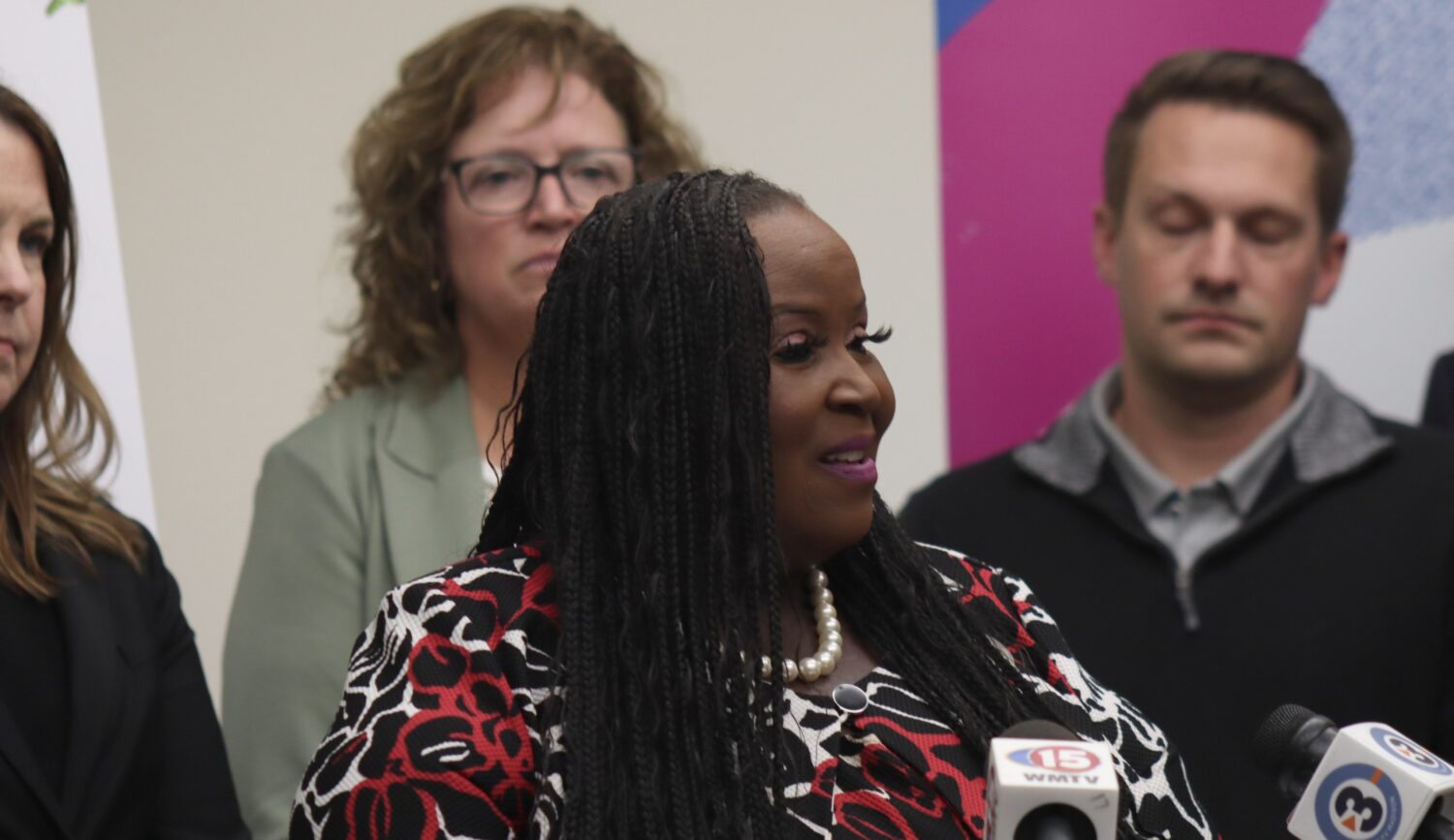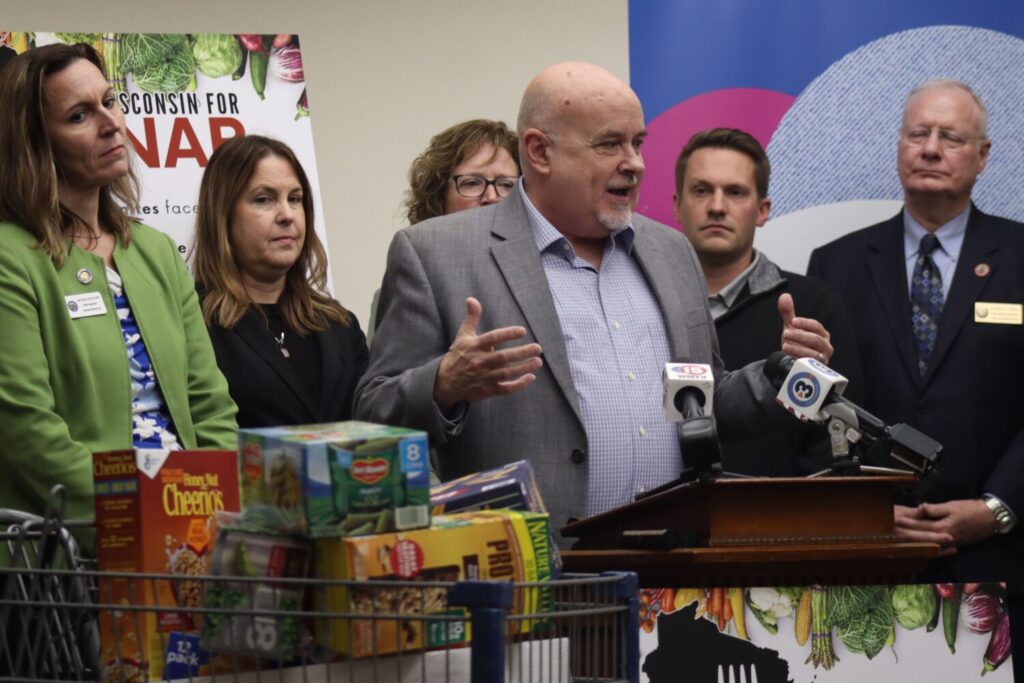
Wisconsin lawmakers and community leaders called on the federal government to release emergency SNAP funding at a press conference at Middlecamp Center for Vincentian Charity on Oct. 30, as FoodShare benefits will be delayed for millions across the country, and for nearly 700,000 Wisconsinites.
The continued government shutdown will impact more than 40 million citizens in the U.S. on SNAP starting on Nov. 1. A contingency fund of $5-6 billion, which would be able to fund SNAP for about a month, is available, but no outward plans to release those funds have been made by the Trump Administration. As Congress remains in contention over the budget bill, Wisconsin lawmakers urge the federal government to release contingency funds.
“This impacts Wisconsinites across all walks of life, from seniors to our fixed income, to working parents and kids, our neighbors with disabilities and those unable to work,” said State Rep. Shelia Stubbs.
One in eight people and one in six children across Wisconsin face some level of food insecurity, according to Feeding Wisconsin. The figure translates to 694,710 total, with 202,600 being children.
Feeding America also estimates that for every $1 in food assistance for a household in need, it generates $1.50 in economic activity. Stubbs urges that it isn’t just a hunger issue, but has other economic effects that trickle throughout Wisconsin.
She warns that food pantries cannot be a suitable replacement for SNAP and cannot keep up with growing demand as prices and cost of living continue to increase.
“As a pastor whose church has a food pantry, I can tell you that the need is increasing every day, not only for our low-income members of our community, our middle-class professionals and families are facing hunger, too, because wages aren’t keeping up with the pace of the cost of living,” Stubbs said. “We are going to see a huge increase in the visits to our pantries if the shutdown continues and the FoodShare funding is not released.”
Chris Kane, senior director of client services at St. Vincent DePaul, said that usage in SVP’s food pantries has increased as much as 50% in the past few days — and significantly more than it typically sees during this time of year.
The good news he imparted is that SVP can meet the current need for increased usage, but that it cannot replace SNAP in the long run.

(Photo by Omar Waheed)
“The bad news is that food pantries cannot replace SNAP. Food pantries and SNAP are intended to work together to combat food insecurity,” Kane said. “For every one meal that is provided by food pantries, the SNAP program provides nine meals. That is too large of a gap for the charitable sector to replace.”
U.S. Congressman Mark Pocan said it’s time for his Republican colleagues to come back to the table to talk. The President has the option to release contingency funds for SNAP, but has chosen not to, despite a legislative directive to continue funding, Pocan said.
“Regardless of what happens with the shutdown… we have the funds available, and by not doing it, we are intentionally making it so that poor and hungry kids don’t get food, and families that need it the most don’t get it,” Pocan said.
Wisconsin is part of a lawsuit with other partner states to sue for the release of funds, Pocan said.
When asked how Wisconsin could step up to support its nearly 700,000 on SNAP, Pocan referred to the lawsuit and a need to resolve the government shutdown.
Reporters asked if Wisconsin would be willing to foot the bill for its residents. Pocan stated that there is no interest from the state’s Republican majority to do that. Wisconsin’s SNAP program costs about $114 million per month, according to Wisconsin’s Department of Health Services.



